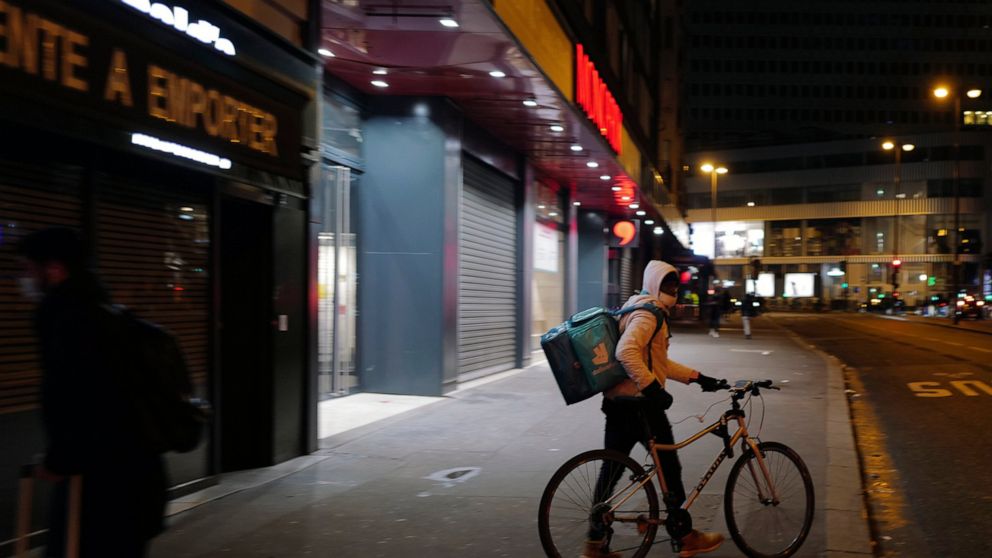Deliveroo shares slump in UK IPO as investor appetite wanes
Shares of app-based meal delivery service Deliveroo tumbled by as much as a third in their U.K. stock market debut on Wednesday
LONDON — Shares of app-based meal delivery service Deliveroo, which saw its business boosted by pandemic lockdowns, tumbled by as much as a third in their U.K. stock market debut on Wednesday.
The London-based company’s shares slid even after they were priced at the bottom of the potential range, reflecting investor wariness about whether Deliveroo could turn a profit and broader market turbulence for tech-related stocks.
Demand was also hurt after at least six leading U.K. fund managers said they would abstain from investing amid concerns about working conditions for the company’s delivery riders and its shareholder structure.
Shares in Deliveroo, which competes with Uber Eats and whose backers include Amazon, were down as much as 30% in early trading from their offer price of 390 pence.
Still, Deliveroo’s initial public offering is one of Europe’s biggest yet this year. The company said it raised 1 billion pounds ($1.4 billion) from selling new shares, while existing shareholders sold another 500 million pounds worth of shares, in a stock market listing that values the company at 7.6 billion pounds.
Deliveroo was founded by American ex-banker Will Shu and operates in a dozen countries in Europe and Asia. Every month more than 6 million customers order food from restaurants and shops through the Deliveroo app, according to its prospectus.
Bicycle and scooter riders lugging insulated bags in the company’s signature robin’s egg blue are ubiquitous on the streets of London.
Deliveroo was a big beneficiary of the the coronavirus pandemic. Lockdown restrictions sent demand for takeout food soaring and increased its overall transactions, but analysts wonder if the lift will last.
“The pandemic has offered a structural growth opportunity, but it’s worth asking if lockdowns mean things are as good as they will ever be for a takeaway service,” Sophie Lund-Yates, an equity analyst at Hargreaves Lansdown, said in a research note. “The longer-term outlook depends on how demand holds up in a post-pandemic world, and if that road to profitability looks any clearer.”
Deliveroo has never turned a profit since it was founded in 2013, and it lost more than $300 million last year.
Some of the U.K.’s biggest fund managers lost their appetite for Deliveroo shares because of its use of “gig economy” workers.
One fund manager, M&G, voiced concerns about Deliveroo’s reliance on gig workers, saying it presented a risk to “the sustainability of its business model.”
Having a flexible workforce has been key to the company’s success, but the threat of tighter regulation looms. The U.K.s’ top court recently ruled that Uber drivers should be classed as “workers” and not self-employed, entitling them to benefits such as minimum wage and pensions.
———
For all of AP’s tech coverage, visit https://apnews.com/apf-technology
———
Follow Kelvin Chan at www.twitter.com/chanman
![]()


